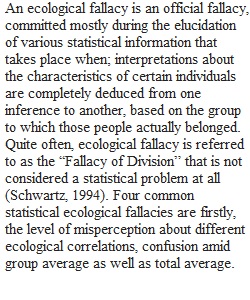


Q What is the ecological fallacy? How does the "unit of analysis" play a role in committing this error? Why are researchers interested in studying the "aggregate" rather than individuals? 2. Define the following terms: cohort, trend, panel, cross-sectional studies, and longitudinal studies. Give a criminal justice example of each (give your own example and not one from the book)
View Related Questions